Our columnist, veteran international coach Tjitte Weistra, takes a look this month at how, as a coach, to manage a team that is preparing for a big multi-sport event, like the recent Commonwealth Games or the upcoming Asian Games. They are, like the Olympics, very different competitions than the usual tour: in terms of pressure, expectations, and temptations. Here is Tjitte’s advice.
By Tjitte Weistra, Badzine Columnist. Photos: Badmintonphoto
This topic is a hard nut to crack as it so situational and there is not one right approach. You should not expect to find any black and white answers in this article about how to manage a team. Managing badminton teams at a multi-sport event is a real challenge but a very exciting one. When coaching or managing such a team for the first time, one comes away with a wealth of new experiences which will stimulate new learning and usually leave one hungry for more, much more. The added atmosphere of being surrounded by other coaches and athletes from other sports in a setting which most players and coaches dream of, creates this surreal experience which you often do not capture until you get back to reality and you realise that you actually have to start paying again for your own food.
The Olympics is the best known example of a multi-sport event in which badminton players participate but there are quite a few more events such as Asian Games, Pan American Games and the Commonwealth Games. For many countries, these latter games are more challenging in terms of management as they feature a team event as well where the Olympics is just individual. Team events often mean bigger teams of players are being taken away to whereas the Olympics, for most countries, means only one or very few players are representing a country which makes the management challenge in terms of logistics a lot easier.
Team atmosphere…
The question that I will try to answer in this article is how a healthy team atmosphere can be enhanced and which challenges we face by trying to achieve the optimal team culture for best performance of the players. Let me start by saying that the best teams are usually managed by people who have extensive experience in taking teams on the road. Multi-sport events are quite different in set up and approach that previous experience can make a big difference. So what is the main challenge we face? Is it the logistics? Is it the distractions that multi-sport events bring (other athletes, famous athletes, opening ceremony, family members and friends who are present at the games, watching other sports, amount of free food available, etc.)? Or, is the challenge we face exactly the same as for any other (team) event? This being the fact that we deal with individual players, different characters and different behaviour of player which often makes it very hard to “gel” a team. Players are often very selfish and so they probably should be if they want to make it to the top but this can cause challenges which cannot be addressed once a team has arrived at an event, worse when it is a multi-sport event because of all the additional factors that may cause distractions to the team or individual players. It requires extensive planning and preparation and expectations for the team and players individually need to be set out clearly before departure and need to be built into the preparation programme.
Crucial – the planning and the logistics
I will try and answer the above questions based on my own experience. A crucial factor in making a multi-sport event a success is the planning and preparation of the coach(es) and manager(s) that will lead the team. I’m not talking about the players’ technical, physical, tactical and mental preparation, which is of course very important. I will assume in this article that this is being taken care of. Coaches and managers need to have a clear understanding of who has what responsibilities. There is nothing worse for players during multi-sport events when it is obvious that the communication and coordination between coaches and managers is showing cracks. There is a lot to manage during these events especially because of the link to the National Olympic Committee, who will require constant information and updates from each sport and who are the key people to approach when you require support. Managers will, for example, need to attend regular meetings with their country’s NOC.
The logistics during the Games can, for the majority of the time, be sorted out prior to departure as most information with regards to schedules of play, accommodation and venue can be found on Games website and through your NOC. Arranging practice courts can be completed prior to arrival in the village so usually the only things to quickly address upon arrival are transport schedules to training and competition venues and familiarising the team with the village facilities.
Distractions? Do’s and don’ts
The distractions are probably the biggest issue to deal with as team managers and coaches. Although players know they come to perform, they will feel individual or peer pressure to explore the Games as much as possible, which can lead to interference with their performance, often without them realising it themselves. Key here is to address all possible distractions with the players before leaving and again upon arrival in the village. Players need to understand the distractions that they will face and how they need to cope with these, although without previous experience, the Games environment can simply be overwhelming.
The solution for dealing with the distractions is to set clear guidelines/rules around do’s and don’ts. It is recommended that the players play a significant part in setting these guidelines to create buy-in and accountability. The Games “wow” factor can be addressed by simply assuring that the team arrives early enough in the village to deal with all the new experiences so that they have settled by the time competition starts. The two main distractions that I believe or really worth giving special attention to are the Opening Ceremony and family members of players attending the Games as spectators. The first distraction only needs to be dealt with once during the Games but the second one can be a constant distraction and point of frustration for coaches and managers.
The Opening Ceremony distraction is not that hard to deal with although the decision whether to attend or not can be a very difficult one as players will always have to fight against the thought of really wanting to go to the ceremony and knowing that it might affect their performance. Badminton almost always starts on the first day of the Games due to the time it takes to complete the various events and that means that most players will have to compete on the first day. Opening Ceremonies can be very tiring due to the amount of time it takes to prepare, wait, march and get back to the village. If, on top of that, the Games are being held in a country with a very warm climate then the energy can be sucked right out of you. As the opening ceremony is always held in the evening and carries on until very late, players are usually not back until well past midnight. Upsetting sleep patterns is the last thing you probably want to do before a big performance. But, in saying all the above, there is a counter argument which for some players weighs very heavily.
Attending the opening ceremony can be very motivating, it can add to the desire of wanting to perform well, it creates an adrenaline rush which can last for quite a while as it is such a fantastic experience being part of it all. The decision whether to attend or not can either be taken by the team management or by the players individually; it will depend on the management’s approach to this and the factors that they take into consideration when addressing the issue.
How to deal with families
Family members and/or friends attending the Games as spectators and the possible distractions they bring need to be management quite carefully and my advice would be to start that process well before departure for the Games to avoid conflicts during the event. Every country, management team and player will have a different approach to managing this. Again, there is not a right or wrong answer. What it comes down to is ensuring that both players and management are comfortable with the arrangement made around meeting family members during the Games. It can also vary quite significantly per player in terms of how meeting family members affects their performance (positively or negatively). I would advise to discuss this with each player individually as to find out whether any of their family members will be attending the Games and what their expectation is around being able to meet them during the event.
My experience is that the easiest way to deal with the distraction is to identify time-slots in your overall Games schedule which can be used by the players to meet family members and leave it up to them as to whether they wish to use those allocated times or not. This way it is easy to manage and control and everybody can organise themselves in advance and also advise their family members of the available days/times that they could possibly catch up. It is usually harder to manage interaction between players and family members at the event venue depending on the lay-out of the venue and the seating arrangements for players/teams and spectators. In the previous two Commonwealth Games it was very easy for players and spectators to physically interact, which caused some difficulties as most family members will try and seek that contact and sometimes perhaps don’t realise the impact that might have on the team dynamics. To avoid such scenarios I’m going back to a point made earlier and that is to deal with these kinds of situations before departure to the Games. Identify which players have family members going and have a meeting with both players and family members, where possible, to address this so everybody understands what the expectations are. If unwanted scenarios then do pop up during the Games then you can quickly remind them of the guidelines that were put in place and usually this is sufficient to avoid any further distractions.
“If it’s good for the team… do it”
In conclusion, many factors can influence performance at multi-sport events. It is a matter of planning carefully and making sure you run through all possible scenarios and situations before departure and addressing them with players and family members travelling to the Games as supporters. Include the players in this process where possible to create understanding and buy-in. Having the expectations and guidelines clearly mapped out will enhance the team and player’s experience and help to create a healthy atmosphere within the team. Individual characteristics of players will be easier to manage and control in a team environment with clear expectations and guidelines. A saying that I personally like to use when taking away teams of players is: If it’s good for the team, do it. If it’s not, then don’t. With this, I hope that players will make decisions which enhance the team culture and atmosphere rather than only thinking about themselves.
You can find out more on Tjitte Weistra, New Zealand’s “Mobile coach”. Mobile Coach focuses on your needs in your sport or sporting organisation ranging from hands on coaching & presenting to mentoring athletes, coach education, programme consultancy & management. Click on http://www.mobilecoach.co.nz/index.php for more info
![COACH’S NOTEBOOK – Managing teams at multi-sport events Our columnist, veteran international coach Tjitte Weistra, takes a look this month at how, as a coach, to manage a team that is preparing for a big multi-sport event, like […]](http://www.badzine.net/wp-content/uploads/Newsflash-thumbnail.png)
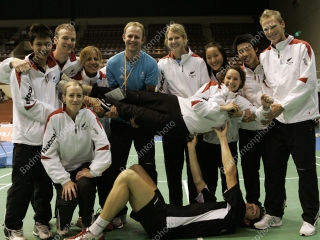
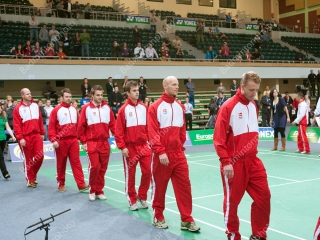
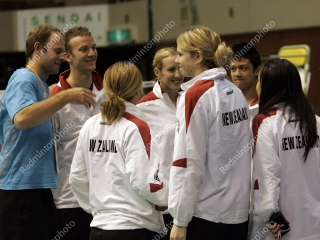
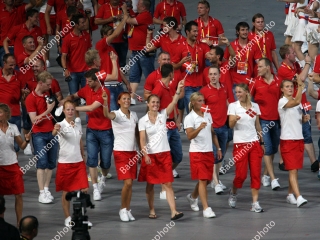
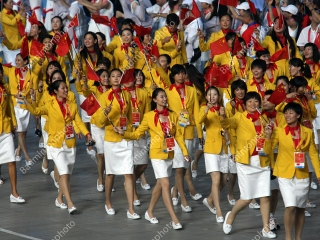
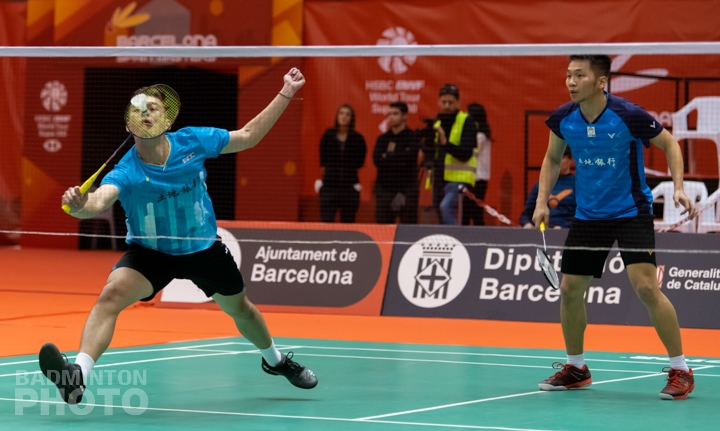
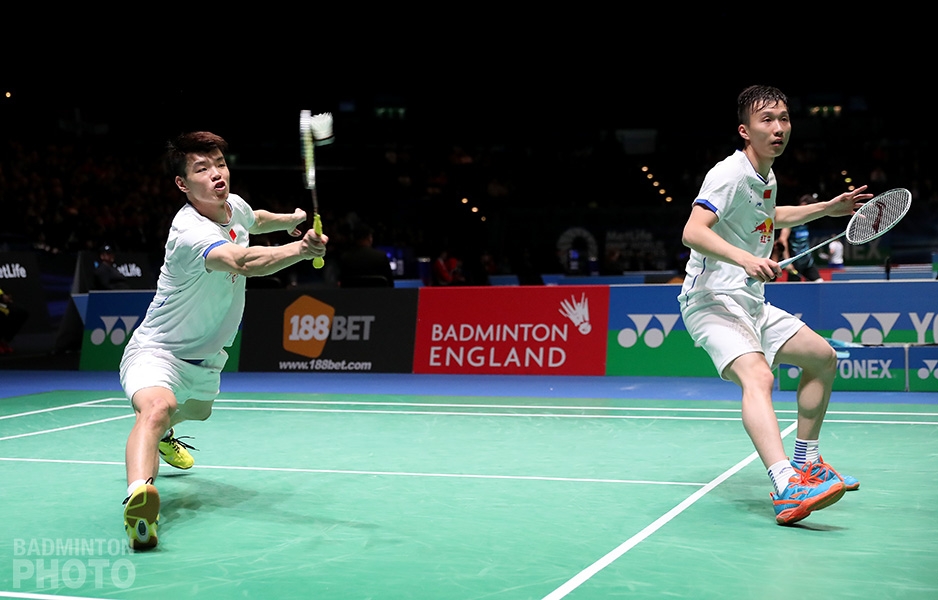
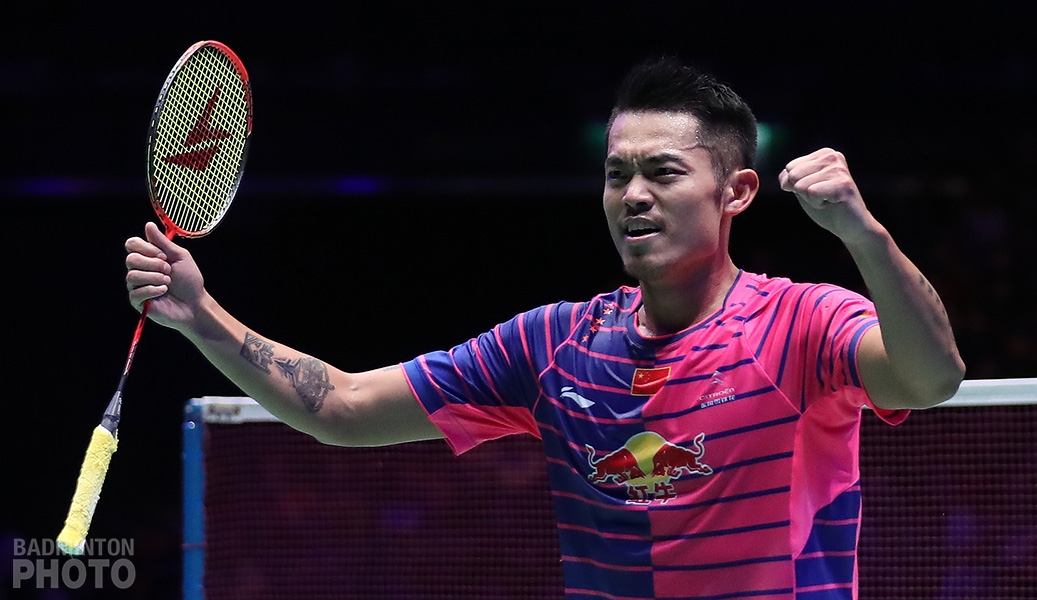
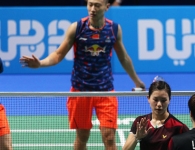
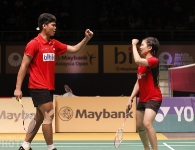
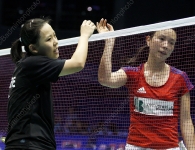
Leave a Reply